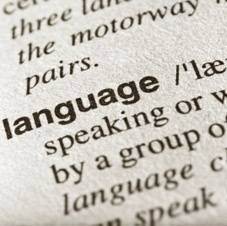I Google, You Google, She Googles……
I Google
You Google
He/She/It Googles
We Google
They Google
Is the verb ‘to google’ going to replace ‘to search’?
I’ve done it myself. Someone asks you a simple question that you can’t remember the answer to, or you quickly want to search for the year an event happened, or when a particular song or film was released or how old a celebrity is….and you say ‘I’ll Google it’.
Google is fast becoming – if it’s not already – the font of all data – according to BBC News Magazine and it’s only natural for us to shorten our words and phrases to quickly get our meaning across. Why say ‘I will search for it on the internet’ when you can say ‘I’ll Google it’?
I do it all the time. I’m sure other people do, and they may not even notice that they’re doing it. This is not a complaint, the thing with the English language – and with every spoken language used in the world today – is that it’s a living language. Latin, for example, is a dead language. It’s unchanging. But languages today are forever on the move. New words and phrases are introduced and older ones die out. The dictionary is constantly being updated. So it’s just a natural process, right?
As a writer, I’m constantly using Google as a quick search method, so it’s natural for me ‘to Google’. Again, this is not a complaint, it’s just an observation. I’m more happy to accept these changes to language than the over use of expletives in everyday language.
And what’s more the word Google has developed from a company name into a household name and now into grammar. The word has naturally weaved itself into such common usage that we’ve turned it into a verb. So for internet search and research will the verb ‘to google’ dominate ‘to search’, ‘to look for’, ‘to research’, ‘to find out’? In any other situation, outside the use of the internet these verbs and phrases will still be used, but when the internet screen is up and running before our eyes, is it just easier ‘to google’? And with mobile phones and tablets having such easy and instant access to the internet even when out and about, ‘to google’ is looking more and more dominant.
Isn’t is great the way language can adapt? It truly makes you wonder what words will be in common usage in fifty years time.
Google is one of the most incredible breakthroughs that we have today. Yes, it can scare a lot of patients, thinking we’re all dying because we look up something on Google. But there’s also a lot of anecdotal information from parents, first-hand accounts of what they did for their own child.
Jenny McCarthy
Some say Google is God. Others say Google is Satan. But if they think Google is too powerful, remember that with search engines unlike other companies, all it takes is a single click to go to another search engine.
Sergey Brin
The word Goo·gle according to the dictionary…
[goo-guhl] Show IPA noun, verb, Goo·gled, Goo·gling.
noun Trademark.
1.
brand of a leading Internet search engine, founded in 1998.
verb (used with object)
2.
( often lowercase ) to search the Internet for information about (a person, topic, etc.): We googled the new applicant to check her background.
verb (used without object)
3.
( often lowercase ) to use a search engine such as Google to find information, a Web site address,etc., on the Internet.
Origin:
1998; after mathematical term googol
Filed under: Uncategorized Tagged: BBC News, dictionary, English language, Google, internet, language


Louise M.H. Miller's Blog
- Louise M.H. Miller's profile
- 18 followers





